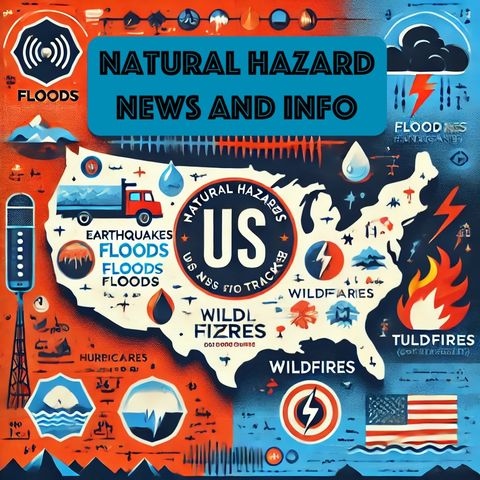Unravel the Mysteries of Kīlauea's East Rift Zone: Groundbreaking Volcanic Research Reveals Secrets of Magma Storage and Migration

Scarica e ascolta ovunque
Scarica i tuoi episodi preferiti e goditi l'ascolto, ovunque tu sia! Iscriviti o accedi ora per ascoltare offline.
Unravel the Mysteries of Kīlauea's East Rift Zone: Groundbreaking Volcanic Research Reveals Secrets of Magma Storage and Migration
Questa è una trascrizione generata automaticamente. Si prega di notare che non è garantita la completa accuratezza.
Descrizione
Kīlauea, one of the most active volcanoes on Earth, frequently erupts at its summit caldera and within its two rift zones. The volcano's constant activity offers a unique opportunity to...
mostra di piùFrequent volcanic earthquakes are not merely destructive forces but also valuable scientific tools. These seismic activities provide insights into the internal structure of the volcano and the movement of magma beneath the surface. At Kīlauea, the ERZ has served as an exceptional natural laboratory for such investigations.
Volcanologists are particularly interested in understanding how magma is stored and moves through the ERZ. The zone extends for several kilometers from Kīlauea’s summit, featuring a complex network of underground magma reservoirs and pathways. These subterranean structures are continually reshaped by the forces of volcanic activity, offering a dynamic puzzle for researchers.
Recent studies have employed a variety of methods to probe the depths of the ERZ. One of the primary techniques involves monitoring seismic waves generated by earthquakes. As these waves travel through the Earth, they are affected by the materials they pass through, including magma. By analyzing the changes in these waves, scientists can infer the locations and properties of magma chambers and conduits.
The 2018 lower East Rift Zone eruption provided an unprecedented amount of data, enhancing our understanding of how magma moves from deep within the Earth to the surface. This catastrophic event also highlighted the significant hazards posed by rift zone eruptions. The eruption destroyed over 700 homes and reshaped the landscape, underscoring the importance of ongoing monitoring and research.
In addition to seismic studies, scientists use other geophysical techniques such as ground deformation measurements and gas emission analysis to cross-verify their findings. Instruments like GPS sensors and InSAR (Interferometric Synthetic Aperture Radar) detect ground movements that may indicate magma accumulating below the surface. Meanwhile, monitoring volcanic gases can reveal changes in magma composition and pressure.
Understanding magma storage and migration in the ERZ is crucial for several reasons. First, it helps improve eruption forecasting, which is vital for public safety. Enhanced predictive models can provide earlier warnings, giving residents and authorities more time to prepare and evacuate if necessary. Second, this knowledge contributes to broader geological science, offering insights into the processes that shape not only Kīlauea but also other volcanoes around the world.
Collaborative efforts among scientists from various institutions have been instrumental in advancing our understanding of Kīlauea’s ERZ. These collaborations often involve the integration of diverse datasets and the development of sophisticated computer models to simulate subterranean magma movements.
Despite the progress made, many questions remain unanswered. The subsurface of a volcano is a constantly changing and challenging environment to study. Future research will likely focus on refining the existing models and developing new techniques to probe even deeper into the Earth.
Kīlauea’s East Rift Zone continues to be a prime area for volcanic research, serving as both a harbinger of potential hazards and a portal to deeper geological understanding. Through persistent monitoring and innovative scientific approaches, researchers aim to further decipher the secrets held beneath one of the Earth’s most active volcanoes.
Informazioni
| Autore | QP-4 |
| Organizzazione | William Corbin |
| Sito | - |
| Tag |
Copyright 2024 - Spreaker Inc. an iHeartMedia Company

Commenti